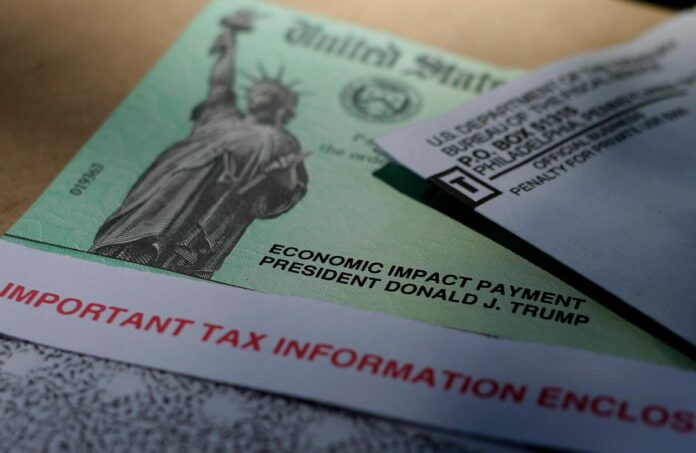
What is the future for another round of stimulus checks? (AP Photo/Eric Gay)
ASSOCIATED PRESS
The Senate is expected to engage on the next round of stimulus as soon as next week. The timeline is tight. Congress would have 3 weeks to complete any future stimulus measure before the expected August 10 break. However, action may come sooner. Certain stimulus measures are set to expire by the end of July. That makes for a tight calendar. The market is watching closely too, as generous stimulus has supported a degree of relative optimism from markets concerning the U.S. economy. If the flow of stimulus is cut, markets could well fall back.
Key Decisions
Perhaps the key decision for the next round of stimulus is more stimulus checks, or Economic Impact Payments as they are sometimes called. Above all issues, this one seems to garner the most attention. That’s interesting because the CARES Act, passed in March, cost an estimated $1.7 trillion per the Congressional Budget Office (CBO), and yet stimulus checks also called “recovery rebates” made up just $293 billion within that measure on CBO estimates. Yes, that’s a lot of money, but it’s under a fifth of the estimated CARES Act spend. It appears that these stimulus checks are popular and in slightly different ways Republican and Democratic lawmakers as well as the White House are lined up behind further checks. So where are the sticking points as we expect to get closer to legislation next week?
Sticking Points
Key decision-makers agree more checks make sense. This includes Nancy Pelosi via the HEROES Act, Mitch McConnell in the recent statements and the White House repeatedly. Yet, there is no consensus on the details. The main factors are the income limits for checks and their size. The treatments of dependents, such as children, may also prove to be a point of debate. Recurring checks have been suggested by Kamala Harris, Bernie Sanders and others, but this concept hasn’t yet received broad traction.
Where Income Limits Fall
Income limits are key. Last round the income bar was set at $75,000 for single filers ($150,000 for joint filers). This round could bring it down to $40,000 for single filers and $80,000 for joint per statements from Mitch McConnell. However, it is unclear that either the Democrats or the White House are on board with the income reduction. The data does appear to show that those on lower incomes have been hit disproportionately by COVID-19 disruption at this point, and have the least savings capacity to last out any economic hardship. Still more limited distribution of checks would disappoint many.
Stimulus Check Amounts
Last round checks were $1,200 per person. Democrats have proposed maintaining that per the HEROES Act. Income limits have become more a point of public discussion, whereas discussions on check size have been more vague. The White House has signalled some support for a more generous check amount.
Total Spend
The total size of any measure will be a limiting factor. Last time checks too up about 20% of the costs of the CARES Act. This time if the overall bill is smaller, coming in at closer to $1 trillion than $2 trillion, as some have suggested, then difficult trade-offs will have to be made.
Other Priorities
Clearly funding is needed elsewhere too, as with the CARES Act demands for business support, expanded unemployment insurance, support for the healthcare system and for state and local governments are all material. Income limit cuts would make those trade-offs easier while still enabling stimulus checks to go out.
It increasingly seems that another round of stimulus checks will come and the details are starting to firm up, but next week we should learn where income limits for stimulus checks will be in the range of $40,000-$75,000 per person and whether the $1,200 payment from last time will stick or modified. It’s still a possibility that we see no checks at all, but there is now consensus behind more checks. The market’s reaction though, will likely focus more on the overall size of the bill than check specifics.






